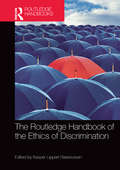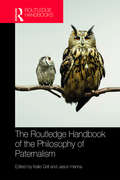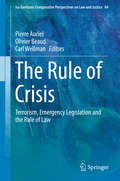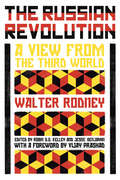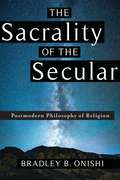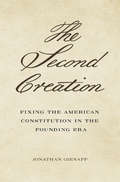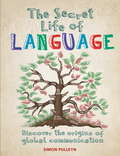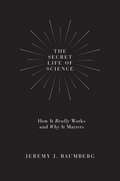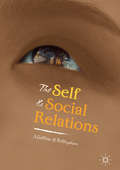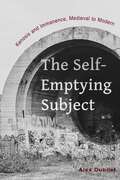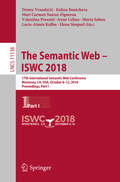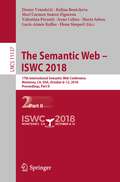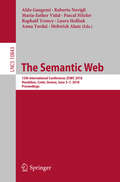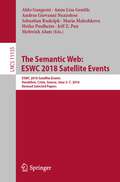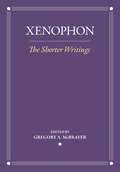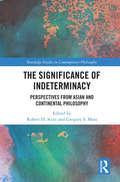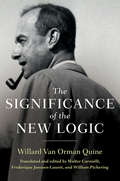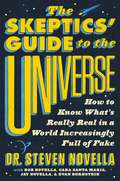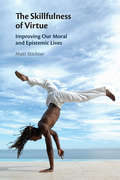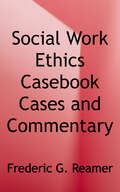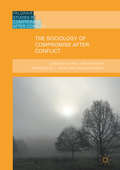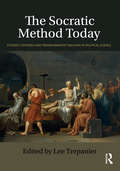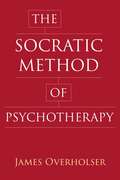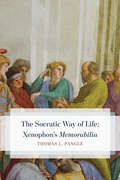- Table View
- List View
The Routledge Handbook of the Ethics of Discrimination (Routledge Handbooks in Applied Ethics)
by Kasper Lippert-RasmussenWhile it has many connections to other topics in normative and applied ethics, discrimination is a central subject in philosophy in its own right. It plays a significant role in relation to many real-life complaints about unjust treatment or unjust inequalities, and it raises a number of questions in political and moral philosophy, and in legal theory. Some of these questions include: what distinguishes the concept of discrimination from the concept of differential treatment? What distinguishes direct from indirect discrimination? Is discrimination always morally wrong? What makes discrimination wrong? How should we eliminate the effects of discrimination? By covering a wide range of topics, and by doing so in a way that does not assume prior acquaintance, this handbook enables the reader to get to grips with the omnipresent issue. The Routledge Handbook of the Ethics of Discrimination is an outstanding reference source to this exciting subject and the first collection of its kind. Comprising over thirty chapters by a team of international contributors the handbook is divided into six main parts: • conceptual issues • the wrongness of discrimination • groups of ‘discriminatees’ • sites of discrimination • causes and means • history of discrimination. Essential reading for students and researchers in applied ethics and political philosophy the handbook will also be very useful for those in related fields, such as law, sociology and politics.
The Routledge Handbook of the Philosophy of Paternalism (Routledge Handbooks in Applied Ethics)
by Kalle Grill Jason HannaWhile paternalism has been a long-standing philosophical issue, it has recently received renewed attention among scholars and the general public. The Routledge Handbook of the Philosophy of Paternalism is an outstanding reference source to the key topics, problems and debates in this exciting subject and is the first collection of its kind. Comprising twenty-seven chapters by a team of international contributors the handbook is divided into five parts: • What is Paternalism? • Paternalism and Ethical Theory • Paternalism and Political Philosophy • Paternalism without Coercion • Paternalism in Practice Within these sections central debates, issues and questions are examined, including: how should paternalism be defined or characterized? How is paternalism related to such moral notions as rights, well-being, and autonomy? When is paternalism morally objectionable? What are the legitimate limits of government benevolence? To what extent should medical practice be paternalistic? The Routledge Handbook of the Philosophy of Paternalism is essential reading for students and researchers in applied ethics and political philosophy. The handbook will also be very useful for those in related fields, such as law, medicine, sociology and political science.
The Rule of Crisis: Terrorism, Emergency Legislation And The Rule Of Law (Ius Gentium: Comparative Perspectives on Law and Justice #64)
by Carl Wellman Pierre Auriel Olivier BeaudThis book analyzes emergency legislations formed in response to terrorism. In recognition that different countries, with different legal traditions, have different solutions, it adopts a comparative point of view. The countries profiled include America, France, Israel, Poland, Germany and United Kingdom. The goal is not to offer judgment on one response or the other. Rather, the contributors offer a comprehensive and thoughtful examination of the entire concept. In the process, they draw attention to the inadaptability of traditional legal and philosophical categories in a new and changing political world. The contributors first criticize the idea of these legislations. They then go on to develop different models to respond to these crises. They build a general analytical framework by answering such questions as: What is an emergency legislation? What kinds of emergencies justify laws of this nature? Why is contemporary terrorism such a specific emergency justifying new laws? Using legal and philosophical reflections, this study looks at how we are changing society. Coverage also provides historical experiences of emergency legislations to further illustrate this point. In the end, readers will gain insight into the long-term consequences of these legislations and how they modify the very work of the rule of law.
The Russian Revolution: A View from the Third World
by Vijay Prashad Robin D.G. Kelley Walter Rodney Jesse BenjaminA never-before-published book by the Pan-Africanist and socialist scholar and revolutionaryIn his short life, the Guyanese intellectual Walter Rodney emerged as one of the leading revolutionary thinkers of the Black Sixties. Earning his PhD in 1966 at the age of 24 and publishing his influential history, How Europe Underdeveloped Africa, at 30, Rodney became a leading force of dissent throughout the Caribbean and a lightning rod of controversy. The 1968 Rodney Riots erupted in Jamaica when he was prevented from returning to his teaching post at the University of the West Indies. In 1980, Rodney was assassinated in Guyana, reportedly at the behest of the government. In the mid-’70s, Rodney taught a course on the Russian Revolution at the Universtiy of Dar es Salaam in Tanzania. A Pan-Africanist and Marxist, Rodney sought to make sense of the reverberations of the October Revolution in a decolonizing world marked by Third World revolutionary movements. He intended to publish a book based on his research and teaching. Now historians Jesse Benjamin, Robin D.G. Kelley, and Vijay Prashad have edited Rodney’s polished chapters and unfinished lecture notes, presenting the book that Rodney had hoped to publish.The Russian Revolution is a signal event in radical publishing, and will inaugurate Verso Books's standard edition of Walter Rodney’s works.
The Sacrality of the Secular: Postmodern Philosophy of Religion
by Bradley B. OnishiThrough a bold and historically rooted vision for the future of philosophy of religion, The Sacrality of the Secular maps new and compelling possibilities for a nonsecularist secularity. In recent decades, philosophers in the continental tradition have taken a notable interest in the return of religion, a departure from the supposed hegemony of the secular age that began with the Enlightenment. At the same time, anthropologists and sociologists have begun to reject the once-dominant secularization thesis, which both prescribed and described the demise of religion in modern societies.In The Sacrality of the Secular, Bradley B. Onishi reconsiders the role of religion at a time when secularity is more tenuous than it might seem. He demonstrates that philosophy’s entanglement with religion led, perhaps counterintuitively, to vibrant reconceptions of the secular well before the unraveling of the secularization thesis or the turn to religion. Through rich readings of Heidegger, Bataille, Weber, and others, Onishi rethinks what philosophy can contribute to our understanding of religion and the wider social and cultural world.
The Second Creation: Fixing the American Constitution in the Founding Era
by Jonathan GienappAmericans widely believe that the U.S. Constitution was almost wholly created when it was drafted in 1787 and ratified in 1788. Jonathan Gienapp recovers the unknown story of the Constitution’s second creation in the decade after its adoption—a story with explosive implications for current debates over constitutional originalism and interpretation.
The Secret Life of Language (Secret Life of)
by Simon PulleynThis book looks at how language has evolved around the globe from ancestral proto-languages to our recognisable modern tongues. It demonstrates how language has been shaped by social and cultural influences, and even explains how our anatomy affects the articulation, and therefore evolution, of words. Discover the surprising stories behind theorigin of the written word, the difficulties of decipherment and the challenge of inventing from scratch languages such as Dothraki.Combining expert analysis with accessible narrative and fun illustrations, The Secret Life of Language makes even the complex topics of philology, morphology and phonology easy to understand.
The Secret Life of Language: Discover The Origins Of Global Communication (The\secret Life Of Ser.)
by Simon PulleynThis book looks at how language has evolved around the globe from ancestral proto-languages to our recognisable modern tongues. It demonstrates how language has been shaped by social and cultural influences, and even explains how our anatomy affects the articulation, and therefore evolution, of words. Discover the surprising stories behind theorigin of the written word, the difficulties of decipherment and the challenge of inventing from scratch languages such as Dothraki.Combining expert analysis with accessible narrative and fun illustrations, The Secret Life of Language makes even the complex topics of philology, morphology and phonology easy to understand.
The Secret Life of Science: How It Really Works and Why It Matters
by Jeremy BaumbergA revealing and provocative look at the current state of global scienceWe take the advance of science as given. But how does science really work? Is it truly as healthy as we tend to think? How does the system itself shape what scientists do? The Secret Life of Science takes a clear-eyed and provocative look at the current state of global science, shedding light on a cutthroat and tightly tensioned enterprise that even scientists themselves often don't fully understand.The Secret Life of Science is a dispatch from the front lines of modern science. It paints a startling picture of a complex scientific ecosystem that has become the most competitive free-market environment on the planet. It reveals how big this ecosystem really is, what motivates its participants, and who reaps the rewards. Are there too few scientists in the world or too many? Are some fields expanding at the expense of others? What science is shared or published, and who determines what the public gets to hear about? What is the future of science? Answering these and other questions, this controversial book explains why globalization is not necessarily good for science, nor is the continued growth in the number of scientists. It portrays a scientific community engaged in a race for limited resources that determines whether careers are lost or won, whose research visions become the mainstream, and whose vested interests end up in control.The Secret Life of Science explains why this hypercompetitive environment is stifling the diversity of research and the resiliency of science itself, and why new ideas are needed to ensure that the scientific enterprise remains healthy and vibrant.
The Self and Social Relations
by Matthew WhittinghamThis book is concerned with the human individual and her relationship with the communities of which she is a member. It argues against the traditional atomistic view that individuals are essentially independent of the social relations into which they enter, and instead argues for the holistic view that we are essentially social beings who cannot exist apart from normative communities. Matthew Whittingham engages in a sustained exploration and criticism of the classic Western picture of epistemology. He argues instead that communities ground the possibility of our forming a conception of the world and ourselves, that those social relations open up a range of affective responses and forms of action that would otherwise be impossible, they enable us to know and reason about the world, and they make possible the daily struggles for freedom and self-realization that are familiar to us all and find their most powerful expression in major social movements.
The Self-Emptying Subject: Kenosis and Immanence, Medieval to Modern
by Alex DubiletAgainst the two dominant ethical paradigms of continental philosophy–Emmanuel Levinas’s ethics of the Other and Michel Foucault’s ethics of self-cultivation—The Self-Emptying Subject theorizes an ethics of self-emptying, or kenosis, that reveals the immanence of an impersonal and dispossessed life “without a why.” Rather than aligning immanence with the enclosures of the subject, The Self-Emptying Subject engages the history of Christian mystical theology, modern philosophy, and contemporary theories of the subject to rethink immanence as what precedes and exceeds the very difference between the (human) self and the (divine) other, between the subject and transcendence. By arguing that transcendence operates and subjects life in secular no less than in religious domains, this book challenges the dominant distribution of concepts in contemporary theoretical discourse, which insists on associating transcendence exclusively with religion and theology and immanence exclusively with modern secularity and philosophy.The Self-Emptying Subject argues that it is important to resist framing the relationship between medieval theology and modern philosophy as a transition from the affirmation of divine transcendence to the establishment of autonomous subjects. Through an engagement with Meister Eckhart, G.W.F. Hegel, and Georges Bataille, it uncovers a medieval theological discourse that rejects the primacy of pious subjects and the transcendence of God (Eckhart); retrieves a modern philosophical discourse that critiques the creation of self-standing subjects through a speculative re-writing of the concepts of Christian theology (Hegel); and explores a discursive site that demonstrates the subjecting effects of transcendence across theological and philosophical operations and archives (Bataille). Taken together, these interpretations suggest that if we suspend the antagonistic relationship between theological and philosophical discourses, and decenter our periodizing assumptions and practices, we might encounter a yet unmapped theoretical fecundity of self-emptying that frees life from transcendent powers that incessantly subject it for their own ends.
The Semantic Web – ISWC 2018: 17th International Semantic Web Conference, Monterey, CA, USA, October 8–12, 2018, Proceedings, Part I (Lecture Notes in Computer Science #11136)
by Valentina Presutti Elena Simperl Mari Carmen Suárez-Figueroa Marta Sabou Denny Vrandečić Kalina Bontcheva Irene Celino Lucie-Aimée KaffeeThe two-volume set LNCS 11136 and 11137 constitutes the refereed proceedings of the 17th International Semantic Web Conference, ISWC 2018, held in Monterey, USA, in October 2018. The ISWC conference is the premier international forum for the Semantic Web / Linked Data Community. The total of 62 full papers included in this volume was selected from 250 submissions. The conference is organized in three tracks: for the Research Track 39 full papers were selected from 164 submissions. The Resource Track contains 17 full papers, selected from 55 submissions; and the In-Use track features 6 full papers which were selected from 31 submissions to this track.
The Semantic Web – ISWC 2018: 17th International Semantic Web Conference, Monterey, CA, USA, October 8–12, 2018, Proceedings, Part II (Lecture Notes in Computer Science #11137)
by Valentina Presutti Elena Simperl Mari Carmen Suárez-Figueroa Marta Sabou Denny Vrandečić Kalina Bontcheva Irene Celino Lucie-Aimée KaffeeThe two-volume set LNCS 11136 and 11137 constitutes the refereed proceedings of the 17th International Semantic Web Conference, ISWC 2018, held in Monterey, USA, in October 2018. The ISWC conference is the premier international forum for the Semantic Web / Linked Data Community. The total of 62 full papers included in this volume was selected from 250 submissions. The conference is organized in three tracks: for the Research Track 39 full papers were selected from 164 submissions. The Resource Track contains 17 full papers, selected from 55 submissions; and the In-Use track features 6 full papers which were selected from 31 submissions to this track.Paper 'The SPAR Ontologies' is available open access under a Creative Commons Attribution 4.0 International License via link.springer.com.
The Semantic Web: 15th International Conference, ESWC 2018, Heraklion, Crete, Greece, June 3–7, 2018, Proceedings (Lecture Notes in Computer Science #10843)
by Anna Tordai Maria-Esther Vidal Aldo Gangemi Raphaël Troncy Pascal Hitzler Roberto Navigli Laura Hollink Mehwish AlamThis book constitutes the refereed proceedings of the 15th International Semantic Web Conference, ESWC 2018, held in Heraklion, Crete, Greece.The 48 revised full papers presented were carefully reviewed and selected from 179 submissions. The papers cover a large range of topics such as logical modelling and reasoning, natural language processing, databases and data storage and access, machine learning, distributed systems, information retrieval and data mining, social networks, and Web science and Web engineering.
The Semantic Web: Eswc 2018 Satellite Events, Heraklion, Crete, Greece, June 3-7, 2018, Revised Selected Papers (Lecture Notes in Computer Science #11155)
by Heiko Paulheim Sebastian Rudolph Aldo Gangemi Mehwish Alam Anna Lisa Gentile Andrea Giovanni Nuzzolese Maria Maleshkova Jeff Z PanThis book constitutes the thoroughly refereed post-conference proceedings of the Satellite Events of the 15th Extended Semantic Web Conference, ESWC 2018, held in Heraklion, Crete, Greece, in June 2018.The volume contains 41 poster and demonstration papers, 11 invited workshop papers, and 9 full papers, selected out of a total of 70 submissions. They deal with all areas of semantic web research, semantic technologies on the Web and Linked Data.
The Shorter Writings: "apology Of Socrates To The Jury," "oeconomicus," And "symposium" (Agora Editions)
by XenophonThis book contains new, annotated, and literal yet accessible translations of Xenophon’s eight shorter writings, accompanied by interpretive essays that reveal these works to be masterful achievements by a serious thinker of the first rank who raises important moral, political, and philosophical questions. Five of these shorter writings are unmistakably devoted to political matters. The Agesilaos is a eulogy of a Spartan king, and the Hiero, or the Skilled Tyrant recounts a searching dialogue between a poet and a tyrant. The Regime of the Lacedaemonians presents itself as a laudatory examination of what turns out to be an oligarchic regime of a certain type, while The Regime of the Athenians offers an unflattering picture of a democratic regime. Ways and Means, or On Revenues offers suggestions on how to improve the political economy of Athens’ troubled democracy.The other three works included here—The Skilled Cavalry Commander, On Horsemanship, and The One Skilled at Hunting with Dogs—treat skills deemed appropriate for soldiers and leaders, touching on matters of political importance, especially in regard to war. By bringing together Xenophon’s shorter writings, this volume aims to help those interested in Xenophon to better understand the core of his thought, political as well as philosophical.Interpretive essays by: Wayne Ambler, Robert C. Bartlett, Amy L. Bonnette, Susan D. Collins, Michael Ehrmantraut, David Levy, Gregory A. McBrayer, Abram N. Shulsky.
The Significance of Indeterminacy: Perspectives from Asian and Continental Philosophy (Routledge Studies in Contemporary Philosophy)
by Robert H. Scott Gregory S. MossWhile indeterminacy is a recurrent theme in philosophy, less progress has been made in clarifying its significance for various philosophical and interdisciplinary contexts. This collection brings together early-career and well-known philosophers—including Graham Priest, Trish Glazebrook, Steven Crowell, Robert Neville, Todd May, and William Desmond—to explore indeterminacy in greater detail. The volume is unique in that its essays demonstrate the positive significance of indeterminacy, insofar as indeterminacy opens up new fields of discourse and illuminates neglected aspects of various concepts and phenomena. The essays are organized thematically around indeterminacy’s impact on various areas of philosophy, including post-Kantian idealism, phenomenology, ethics, hermeneutics, aesthetics, and East Asian philosophy. They also take an interdisciplinary approach by elaborating the conceptual connections between indeterminacy and literature, music, religion, and science.
The Significance of the New Logic
by Walter Carnielli Willard Van Quine Frederique Janssen-Lauret William PickeringW. V. Quine was one of the most influential figures of twentieth-century American analytic philosophy. Although he wrote predominantly in English, in Brazil in 1942 he gave a series of lectures on logic and its philosophy in Portuguese, subsequently published as the book O Sentido da Nova Lógica. The book has never before been fully translated into English, and this volume is the first to make its content accessible to Anglophone philosophers. Quine would go on to develop revolutionary ideas about semantic holism and ontology, and this book provides a snapshot of his views on logic and language at a pivotal stage of his intellectual development. The volume also includes an essay on logic which Quine also published in Portuguese, together with an extensive historical-philosophical essay by Frederique Janssen-Lauret. The valuable and previously neglected works first translated in this volume will be essential for scholars of twentieth-century philosophy.
The Skeptics' Guide to the Universe: How to Know What's Really Real in a World Increasingly Full of Fake
by Steven Novella Bob Novella Cara Santa Maria Jay Novella Evan BernsteinAn all-encompassing guide to skeptical thinking from podcast host and academic neurologist at Yale University School of Medicine Steven Novella and his SGU co-hosts, which Richard Wiseman calls "the perfect primer for anyone who wants to separate fact from fiction."It is intimidating to realize that we live in a world overflowing with misinformation, bias, myths, deception, and flawed knowledge. There really are no ultimate authority figures-no one has the secret, and there is no place to look up the definitive answers to our questions (not even Google). Luckily, THE SKEPTICS' GUIDE TO THE UNIVERSE is your map through this maze of modern life. Here Dr. Steven Novella-along with Bob Novella, Cara Santa Maria, Jay Novella, and Evan Bernstein-will explain the tenets of skeptical thinking and debunk some of the biggest scientific myths, fallacies, and conspiracy theories-from anti-vaccines to homeopathy, UFO sightings to N- rays. You'll learn the difference between science and pseudoscience, essential critical thinking skills, ways to discuss conspiracy theories with that crazy co- worker of yours, and how to combat sloppy reasoning, bad arguments, and superstitious thinking. So are you ready to join them on an epic scientific quest, one that has taken us from huddling in dark caves to setting foot on the moon? (Yes, we really did that.) DON'T PANIC! With THE SKEPTICS' GUIDE TO THE UNIVERSE, we can do this together."Thorough, informative, and enlightening, The Skeptic's Guide to the Universe inoculates you against the frailties and shortcomings of human cognition. If this book does not become required reading for us all, we may well see modern civilization unravel before our eyes."--Neil deGrasse Tyson"In this age of real and fake information, your ability to reason, to think in scientifically skeptical fashion, is the most important skill you can have. Read The Skeptics' Guide Universe; get better at reasoning. And if this claim about the importance of reason is wrong, The Skeptics' Guide will help you figure that out, too." --Bill Nye
The Skillfulness of Virtue: Improving our Moral and Epistemic Lives
by Matt StichterThe Skillfulness of Virtue provides a new framework for understanding virtue as a skill, based on psychological research on self-regulation and expertise. Matt Stichter lays the foundations of his argument by bringing together theories of self-regulation and skill acquisition, which he then uses as grounds to discuss virtue development as a process of skill acquisition. This account of virtue as skill has important implications for debates about virtue in both virtue ethics and virtue epistemology. Furthermore, it engages seriously with criticisms of virtue theory that arise in moral psychology, as psychological experiments reveal that there are many obstacles to acting and thinking well, even for those with the best of intentions. Stichter draws on self-regulation strategies and examples of deliberate practice in skill acquisition to show how we can overcome some of these obstacles, and become more skillful in our moral and epistemic virtues.
The Social Work Ethics Casebook: Cases and Commentary
by Frederic G. ReamerThis is the first ethics casebook, including extensive cases and commentary, published exclusively for social workers. The book's realistic ethics cases provide a useful tool for rich discussion of ethical dilemmas and ethical decision making. Following each set of cases, Reamer includes commentary highlighting key ethics concepts and references to relevant standards in the NASW Code of Ethics. <p><p>The release of Social Work Ethics Casebook highlights ethical issues related to confidentiality and privacy, informed consent, client self-determination, professional paternalism, boundary issues and dual relationships, conflicts of interest, cultural and ethnic diversity, termination of services, administration, collegial impairment, commitments to employers, social work education and training, and more. Each section of the book also includes discussion questions designed to enhance readers understanding and application of important ethics concepts.
The Sociology of Compromise after Conflict (Palgrave Studies in Compromise after Conflict)
by John D. BrewerThis book introduces a new and original sociological conceptualization of compromise after conflict and is based on six-years of study amongst victims of conflict in Northern Ireland, South Africa and Sri Lanka, with case studies from Sierra Leone and Colombia. A sociological approach to compromise is contrasted with approaches in Moral and Political Philosophy and is evaluated for its theoretical utility and empirical robustness with in-depth interview data from victims of conflicts around the globe. The individual chapters are written to illustrate, evaluate and test the conceptualization using the victim data, and an afterword reflects on the new empirical agenda in victim research opened up by a sociological approach to compromise. This volume is part of a larger series of works from a programme advancing a sociological approach to peace processes with a view to seeing how orthodox approaches within International Relations and Political Science are illuminated by the application of the sociological imagination.
The Socratic Method Today: Student-Centered and Transformative Teaching in Political Science
by Lee TrepanierThis exciting new textbook provides a sophisticated examination of the Socratic method for teaching political science students in higher education. It shows how the Socratic method is employed in the Platonic dialogs, compares its transformative approach to other student-centered teaching philosophies, and addresses the challenges of adopting the Socratic method in the contemporary classroom. The book is divided into three sections that integrate these practical aspects on the Socratic method with the theoretical considerations of Socratic philosophy while also addressing contemporary concerns about teaching and learning in higher education. Section One explores how the Socratic method is portrayed by Socrates in Plato’s dialogs. Section Two compares the Socratic method with modern and contemporary accounts of teaching and learning. Section Three examines some of the contemporary challenges of practicing the Socratic method in the university classroom today and how teachers can overcome them. Written in a clear and engaging style, this timely intervention is essential reading for upper undergraduate students enrolled in courses that specialize in pedagogical techniques, political theory, Socratic philosophy, and law.
The Socratic Method of Psychotherapy
by James OverholserAs the field of psychotherapy focuses more on treatment manuals and the regimented nature of clinical research, the practice risks losing the subtle nuances that guide the interactive fluidity of therapy sessions. Can clinicians combat this loss by incorporating ideals from ancient philosophy into contemporary psychotherapy? In The Socratic Method of Psychotherapy, James Overholser approaches cognitive therapy through the interactive dialogues of Socrates, aiming to reduce the gap between theory and practice. Clinicians and students will appreciate the flexibility and creativity that underlie effective psychotherapy sessions when guided by the Socratic method as an innovative approach to self-exploration.
The Socratic Way of Life: Xenophon’s “Memorabilia”
by Thomas L. PangleThe Socratic Way of Life is the first English-language book-length study of the philosopher Xenophon’s masterwork. In it, Thomas L. Pangle shows that Xenophon depicts more authentically than does Plato the true teachings and way of life of the citizen philosopher Socrates, founder of political philosophy. In the first part of the book, Pangle analyzes Xenophon’s defense of Socrates against the two charges of injustice upon which he was convicted by democratic Athens: impiety and corruption of the youth. In the second part, Pangle analyzes Xenophon’s account of how Socrates’s life as a whole was just, in the sense of helping through his teaching a wide range of people. Socrates taught by never ceasing to raise, and to progress in answering, the fundamental and enduring civic questions: what is pious and impious, noble and ignoble, just and unjust, genuine statesmanship and genuine citizenship. Inspired by Hegel’s and Nietzsche’s assessments of Xenophon as the true voice of Socrates, The Socratic Way of Life establishes the Memorabilia as the groundwork of all subsequent political philosophy.
